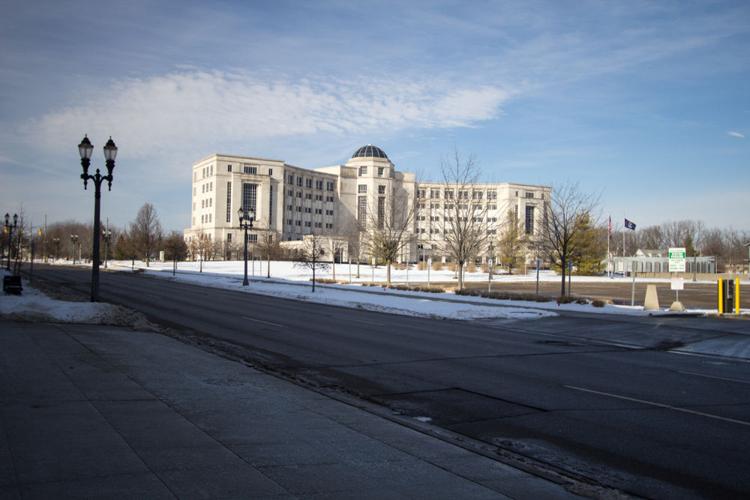Michigan Supreme Court rules in favor of resident seeking FOIA records

The Michigan Supreme Court building, also known as the Michigan Hall of Justice, in downtown Lansing.
(The Center Square) – The Michigan Supreme Court on Friday ruled 6-1 in favor of a Michigan resident attempting to acquire public records through the Freedom of Information Act (FOIA).
Susan Bisio had sued the city of the Village of Clarkston in the Oakland Circuit Court claiming it is violating FOIA requirements in 2015.
Bisio had sought records for documents and correspondence between Clarkston’s city attorney and a consulting firm that discussed a development project.
The attorney claimed the documents weren’t public records because he wasn’t a “public body” defined by FOIA law, so the documents weren’t in possession of the city.
A trial and appeals court sided with the attorney.
The Supreme Court remanded the decision to the trial court after researching local ordinances and past cases.
“The purpose of FOIA is to provide to the people of Michigan ‘full and complete information regarding the affairs of government and the official acts of those who represent them as public officials and public employees,’ thereby allowing them to ‘fully participate in the democratic process,’” the decision said, citing Amberg v Dearborn.
Justice Stephen J. Markman wrote in the opinion that since the Clarkston City Charter created “the office of the city attorney,” the office is a public body, so the documents obtained by that body are public records.
“Consequently, we conclude that the documents at issue are “public records” because they are comprised of “writing[s] prepared, owned, used, in the possession of, or retained by a public body in the performance of an official function, from the time [they were] created,” Markman wrote.

